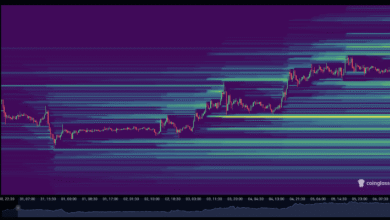Bitcoin Adoption in El Salvador: Understanding the Reality

Bitcoin adoption in El Salvador has transformed the nation into a focal point for cryptocurrency discussions globally. With an astonishing 70% of Salvadorans reportedly owning bitcoin at some point, the trend showcases the dramatic shifts in digital currency acceptance. However, this figure, derived from recent El Salvador Bitcoin news, warrants scrutiny, especially considering the role of the government-led Chivo Wallet initiative. As Bitcoin legal tender, its embrace has not been without challenges, particularly in the wake of advice from the International Monetary Fund (IMF) regarding its implementation. Despite the initial surge in ownership rates, a significant portion of users has abandoned their bitcoin holdings post-incentive, calling into question the sustainability of this adoption rate and its real impact on the country’s economy.
The rise of digital currencies, particularly in regions like El Salvador, underscores a pivotal moment in financial evolution. The widespread acceptance of cryptocurrency, particularly through informal channels and government initiatives, highlights a significant shift in the financial landscape of the nation. Interestingly, Salvadorans are finding themselves at the forefront of a new monetary era, driven by an experimental use of virtual currencies as legal equivalents to traditional cash. While initiatives like the Chivo Wallet have promoted a surge in early adopters, there are still pressing challenges that reveal a complex relationship between citizens and their financial tools. As discussions surrounding Bitcoin and its implications continue to unfold, exploring the dynamics of cryptocurrency integration becomes increasingly vital to understanding the future of digital finance.
Understanding Bitcoin Adoption in El Salvador
El Salvador has recently made headlines for its notable bitcoin adoption, with reports indicating an impressive ownership rate of over 70% among its citizens. This surge in interest can be attributed to President Nayib Bukele’s decision to adopt bitcoin as legal tender, a move that aimed to position the nation as a leader in the cryptocurrency space. However, the reality behind these figures is complex and requires a closer examination. For instance, while many Salvadorans have interacted with bitcoin, the actual number of active users has declined significantly since the initial adoption.
Furthermore, the launch of the Chivo Wallet, which accompanied the legal tender law, was a pivotal moment in introducing bitcoin to the masses. The government incentivized initial use through a $30 airdrop of bitcoin, designed to familiarize citizens with cryptocurrency. However, surveys indicate that a significant percentage of users abandoned the Chivo Wallet after cashing out their initial free funds. Understanding these dynamics is essential to comprehend the true extent of bitcoin’s integration into daily life in El Salvador.
The Role of Chivo Wallet in Bitcoin’s Popularity
The introduction of the Chivo Wallet was a cornerstone in the Salvadoran government’s strategy to promote bitcoin adoption. Designed to facilitate transactions and provide a user-friendly interface for managing digital assets, the wallet was part of a broader initiative to integrate cryptocurrency into everyday economic activities. Despite its innovations, the Chivo Wallet encountered significant challenges, including technical issues and user experience criticisms, which led to decreased engagement among its initial user base.
The $30 incentive provided to new users was a clever strategy to boost initial adoption, but it also laid bare the limitations of sustained interest. Many users seized the opportunity for a quick profit, leading to high abandonment rates. According to research from the National Bureau of Economic Research (NBER), around 60% of individuals who received the airdrop went on to divest from the Chivo Wallet entirely. This trend raises important questions about the long-term viability of Chivo and the future of bitcoin as a payment system in El Salvador.
Challenges of Bitcoin Legal Tender in El Salvador
The decision to declare bitcoin as legal tender in El Salvador has sparked widespread debate and raised challenges for the country’s economy. Although the intent was to increase inclusion in the financial system and attract foreign investment, there are significant roadblocks that hinder these aspirations. Key among them is the skepticism of international organizations like the International Monetary Fund (IMF), which has expressed concerns regarding the country’s financial stability and the risks associated with cryptocurrency markets.
Additionally, practical challenges surround the adoption of bitcoin in daily transactions. Many Salvadorans remain unsure about using bitcoin for purchases, preferring traditional fiat currencies for their reliability. Compounding this issue, the failure of bitcoin to capture the remittance market—historically a vital financial lifeline for many families—highlights the struggles of incorporating digital currencies into existing economic frameworks. The market for remittances remains dominated by established methods, raising questions about the real-life utility of bitcoin in El Salvador.
Economic Implications of Bitcoin Ownership Rates
El Salvador’s astronomical bitcoin ownership rates, surpassing those of many other nations, present a unique economic landscape. On the one hand, higher ownership can promote financial literacy and stimulate discourse on alternative currencies. However, the actual economic impact may not be as profound as the statistics imply. For example, with a significant percentage of users abandoning bitcoin post-airdrop, the perceived wealth generated from bitcoin ownership has not translated into widespread economic benefits or increased transaction volumes.
The implications of high bitcoin ownership also influence how Salvadorans view traditional banking and financial systems. Promoters of cryptocurrency assert that it offers an alternative for those excluded from formal banking sectors. However, to date, many Salvadorans still engage with conventional finance for remittances and other transactions. This dynamic showcases the disparity between bitcoin ownership and real economic engagement with the cryptocurrency market.
Comparative Analysis: Bitcoin in El Salvador vs. Venezuela
While both El Salvador and Venezuela have high reported bitcoin ownership rates, the underlying factors driving these numbers are markedly different. In Venezuela, skyrocketing inflation and economic instability have forced citizens to turn to bitcoin as a hedge against their devaluated currency. This necessity has forged a deep-rooted culture of cryptocurrency use, impacting how citizens approach financial transactions and wealth preservation.
Contrarily, El Salvador’s bitcoin enthusiasm stems largely from a government initiative aimed at economic innovation rather than necessity. The trend appears more speculative, with many Salvadorans engaging with bitcoin as a means to capitalize on its perceived future value—rather than as a lifeline against economic decline. The contrasting motivations behind bitcoin ownership in these two countries elucidate how different socio-economic contexts can influence the cryptocurrency landscape.
Impact of International Organizations on Bitcoin Adoption
The international financial community is closely monitoring El Salvador’s bitcoin journey, particularly due to its recent legal tender status. Institutions like the International Monetary Fund (IMF) have signaled red flags regarding the potential risks associated with this shift, highlighting concerns over volatility, regulation, and financial stability. Their involvement raises questions about how foreign perspectives can shape local adoption and the overall effectiveness of bitcoin as a tool for economic development.
Engagement from international bodies could either encourage or inhibit further bitcoin implementation depending on regulatory support and guidance. For instance, the approval of loans from the IMF may hinge on El Salvador’s ability to effectively manage the integration of digital currencies within its economy. Understanding the delicate balance between local ambitions and international scrutiny is essential as El Salvador navigates its cryptocurrency future.
Future Scan: The Sustainability of Bitcoin Adoption
As El Salvador continues its bitcoin experiment, questions arise regarding the sustainability of such high ownership rates. The initial enthusiasm surrounding the legal tender declaration and incentives like the Chivo Wallet may not guarantee long-term commitment to cryptocurrency among the populace. Future adoption hinges on the government’s response to user frustrations and the effectiveness of community engagement strategies.
Moreover, given the complex nature of cryptocurrencies and their market behaviors, volatility remains a significant concern. For bitcoin to establish deeper roots in Salvadoran society, a multifaceted approach must address both the systemic issues of market integration and the evolving needs of its potential user base. By doing so, El Salvador could pave the way for a balanced relationship with bitcoin that prioritizes economic stability alongside innovative modernization.
Bitcoin’s Influence on the Salvadoran Economy
The integration of bitcoin into the Salvadoran economy marks a significant shift in how cryptocurrencies are perceived and utilized. By positioning bitcoin as a legal form of currency, the government aims to elevate financial inclusion and attract international investments. Yet, the outcomes remain mixed, as adoption does not automatically translate to robust economic impact or universal acceptance among the populace.
Essentially, the effectiveness of bitcoin as an economic driver will largely depend on how local businesses adapt to cryptocurrency operations and how the government addresses existing limitations. Robust infrastructure, regulatory frameworks, and public awareness campaigns are crucial for fostering a cryptocurrency-friendly environment. Ultimately, the success of bitcoin in El Salvador will serve as a reference point for other nations considering similar approaches.
Understanding Bitcoin as a Remittance Solution
Remittances play a crucial role in El Salvador’s economy, accounting for significant portions of GDP. The government’s push for bitcoin adoption aimed to capture a slice of this market by promoting bitcoin as an alternative for transferring money across borders. However, despite the fervor surrounding cryptocurrency, empirical evidence points to a lack of substantial uptake in remittance transactions via bitcoin.
Surveys indicate that traditional methods remain the preferred choice for many Salvadorans, primarily due to reliability and familiarity. While bitcoin has the potential to reduce transaction costs, it has yet to prove robust enough to displace established remittance methods. This demonstrates the challenge of shifting entrenched financial behaviors, regardless of the allure of innovative technology.
Frequently Asked Questions
What is the current status of Bitcoin adoption in El Salvador?
As of now, Bitcoin adoption in El Salvador reached remarkable heights, with over 70% of the population having owned bitcoin at one point. However, current figures show that nearly 30% actively use it. Despite these impressive statistics, challenges such as user retention and sustainable use cases remain.
How did the Chivo Wallet affect Bitcoin adoption in El Salvador?
The Chivo Wallet played a crucial role in Bitcoin adoption in El Salvador by introducing a government-sponsored airdrop of $30 to encourage citizens to engage with bitcoin. While it attracted many users initially, around 60% of users reportedly abandoned the wallet after cashing out, indicating challenges in long-term adoption.
What role did the IMF play in El Salvador’s Bitcoin legal tender law?
The International Monetary Fund (IMF) significantly influenced El Salvador’s Bitcoin legal tender law by requiring compliance measures as part of a $1.4 billion credit facility deal. This relationship has led to increased scrutiny regarding the long-term viability of bitcoin as legal tender.
What are the implications of high Bitcoin ownership rates in El Salvador?
High Bitcoin ownership rates in El Salvador, especially at over 70%, indicate strong initial interest in cryptocurrency. However, it is essential to consider the context, as many users engaged primarily due to short-term incentives rather than a fundamental shift in financial practices.
How does Bitcoin adoption in El Salvador compare to Venezuela?
While both El Salvador and Venezuela showcase high Bitcoin ownership rates, the driving factors for their adoption differ. In Venezuela, high inflation and currency devaluation have fueled the need for alternatives, whereas in El Salvador, the government initiative led by President Bukele and the introduction of the Chivo Wallet sparked initial interest.
Why did Bitcoin fail to capture the remittance market in El Salvador?
Despite high levels of Bitcoin ownership, adoption in the remittance market has been minimal, with less than 1% of total remittance volumes processed through bitcoin. Salvadorans prefer traditional fiat methods due to familiarity and reliability, demonstrating the need for more practical use cases for cryptocurrency.
What is the Chivo Wallet and why is it significant?
The Chivo Wallet is a digital wallet launched by the Salvadoran government to facilitate Bitcoin transactions as part of its commitment to making bitcoin legal tender. It is significant as it represented the first governmental initiative to integrate cryptocurrency into the national economy, aimed at boosting economic participation but facing challenges with user retention.
What challenges remain for Bitcoin adoption in El Salvador?
Despite reaching high ownership rates, challenges for Bitcoin adoption in El Salvador include user abandonment of apps like Chivo Wallet, low engagement in remittance markets, and the need for more sustainable financial education. Addressing these issues is critical for realizing the long-term potential of bitcoin as legal tender.
| Key Point | Details |
|---|---|
| Bitcoin Ownership Rate | Over 70% of Salvadorans have owned bitcoin at some point; about 30% currently own it. |
| Chivo Wallet Introduction | The government launched the Chivo Wallet with an introductory airdrop of $30 to encourage use. |
| User Behavior | A survey showed that 60% of users abandoned the wallet after the airdrop. |
| Remittance Use Case | Despite ownership, bitcoin has not significantly affected remittance flows; less than 1% of total remittances. |
| Comparison with Venezuela | Venezuela has high ownership due to economic conditions, unlike El Salvador’s motives. |
Summary
Bitcoin adoption in El Salvador has garnered global attention with ownership rates surpassing 70%, but the reality is more complex than just the numbers. The government’s initiatives, like the Chivo Wallet and its airdrop, played significant roles in these statistics. However, many users leveraged the airdrop and then abandoned bitcoin, reflecting a lack of deeper engagement with the cryptocurrency. As such, while initial adoption seems impressive, its long-term viability and actual usage, particularly for remittances, remain critical issues. Understanding the nuances behind bitcoin adoption in El Salvador is essential to grasping its future potential.




